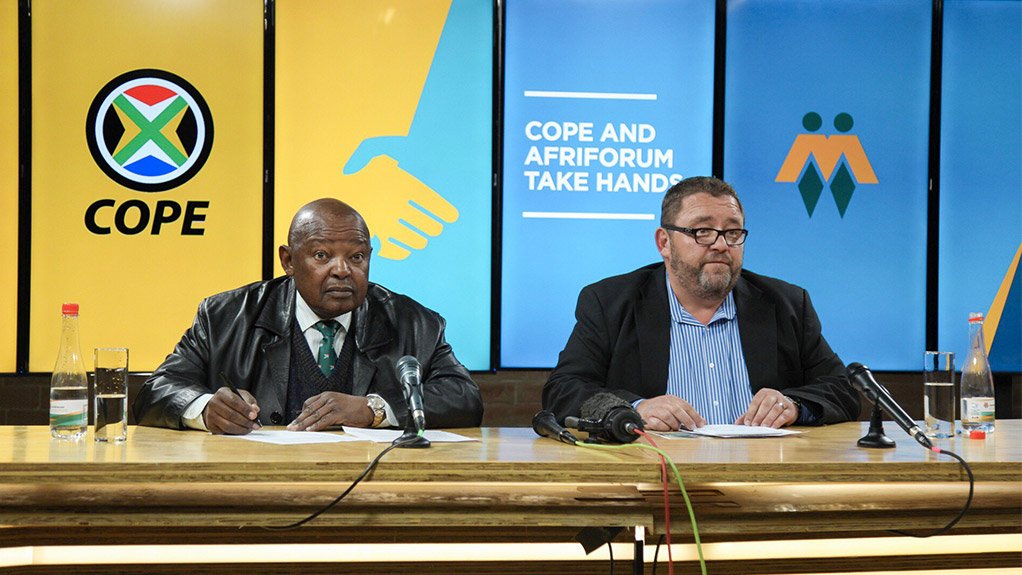Political party the Congress of the People (Cope) and civil rights group AfriForum on Monday called on South Africans and the international community to pressure the government and the ruling African National Congress (ANC) to desist from amending the Constitution to help it deal with land reform.
President Cyril Ramaphosa announced in July that the ANC would amend Section 25 of the Constitution to allow for the expropriation of land without compensation. Nationwide debates and parliamentary processes were at the time taking place to accommodate public comment on the matter.
At a joint media briefing, Cope and AfriForum appealed for support to stop the ANC and government from “acting without a legal mandate from the South African voters in their illegitimate bid to amend the constitution”.
Cope leader Mosiuoa Lekota joined AfriForum CEO Kallie Kriel to announce that their organisations would visit foreign embassies in South Africa in an attempt to defend the Constitution and property rights.
Lekota said that Ramaphosa had violated his oath of office following his July announcement and added that the amendment of the Constitution was the sole right of the South African voter and not of the ANC, Ramaphosa, Parliament or any party.
“The December 2017 Nasrec conference resolution by the ANC does not constitute a legitimate mandate from South African voters. Parliament’s legitimacy is also in question after they failed to hold [Former President Jacob] Zuma accountable, therefore their decision to consider the possible amendment of the Constitution to allow for land expropriation without compensation is furthermore not legitimate. President Ramaphosa has no legitimate mandate from South African voters to call for such an amendment. Similarly, the land hearings do not constitute a legitimate mandate from South African voters as not all South African voters could participate in these hearings,” said Lekota.
Kriel said that the ANC and the National Party had negotiated property rights in the early 1990s, which was now protected in the Constitution.
“Ramaphosa and the ANC’s decision to amend the Constitution unfortunately shows that the ANC is blatantly violating the 1994 settlement. As international pressure played a part in convincing the various parties to enter into the 1994 settlement, the international community now also has a responsibility to help see to it that the ANC sticks to the agreement,” said Kriel.
MUTUAL RESPECT
Lekota and Kriel pointed out that their collaboration around the land issue was an example of how South Africans of different backgrounds and viewpoints could cooperate through mutual recognition and respect.
They said their stance was not a defence of Apartheid or colonialism, which they acknowledged was a serious violation of the dignity of black South Africans, but they felt strongly that the Afrikaner community could not collectively be blamed or punished.
They said that arguing or justifying that black South Africans owned less property than whites was not their aim and to say so was distracting and divisive.
ZIMBABWE’S LAND REFORM
Both leaders cited Zimbabwe as an example of how violating property rights could result in disastrous economic outcomes.
Lekota said land reform was necessary and welcomed but not in the manner that Zimbabwe had undertaken it.
“We must avoid that at all costs. Land reform should be clear, legal and just, not racially divisive, and must lead toward economic development not economic collapse. The current recession and poor performing agricultural sector should be a big warning sign to all of us,” he warned.
EMAIL THIS ARTICLE SAVE THIS ARTICLE ARTICLE ENQUIRY
To subscribe email subscriptions@creamermedia.co.za or click here
To advertise email advertising@creamermedia.co.za or click here











